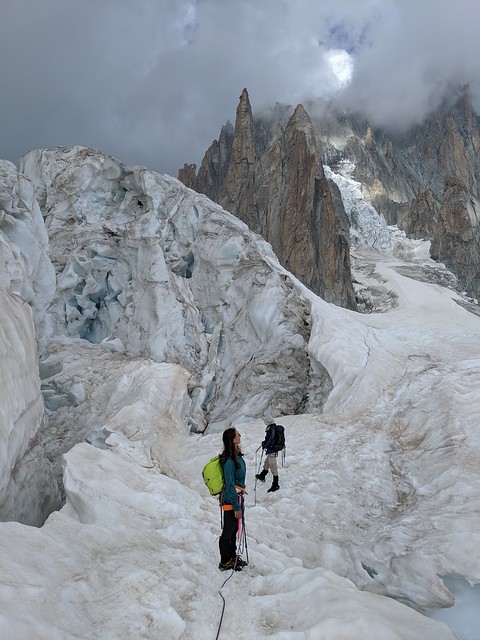 Well I've done morality and economics ad infinitum, perhaps reversing things will help. This is sparked by yesterday's DICE damage functions which lead me to Costing the Earth: A Numbers Game or a Moral Imperative? by Gerard Roe; ATTP's version leads on to it more directly. Alas, it's all rather broken; let's present his abstract for starters:
Well I've done morality and economics ad infinitum, perhaps reversing things will help. This is sparked by yesterday's DICE damage functions which lead me to Costing the Earth: A Numbers Game or a Moral Imperative? by Gerard Roe; ATTP's version leads on to it more directly. Alas, it's all rather broken; let's present his abstract for starters:It is a simple truism that public policy must be guided by an objective analysis of the physical and economic consequences of climate change. It is equally true that policy making is an inherently value-laden endeavor. While these two threads are interconnected, the relative weight given to each depends on the certainty that the technical analyses can deliver. For climate change, the envelope of uncertainty is best understood at the global scale, and there are some well known and formidable challenges to reducing it. This uncertainty must in turn be compounded with much more poorly constrained uncertainties in regional climate, climate impacts, and future economic costs. The case can be made that technical analyses have reached the point of diminishing returns. Should meaningful action on climate change await greater analytical certainty? This paper argues that policy makers should give greater weight to moral arguments, in no small part because that is where the heart of the debate really lies.His simple truisms are of course wrong. It would be desireable for policy to be guided by objective analysis, but it rarely if ever is, so his "must" is certainly wrong. Never mind. Consider next the relative weight given to each depends on the certainty that the technical analyses can deliver. This points up one of his blind spots: his correctly realises that the technical analysis may be uncertain, but fails to realise that his moral analysis may suffer the same problem.
His next section considers the technical stuff and essentially ends "well it's all very uncertain" and so slips into the moral stuff as a substitute. But what he doesn't consider is how good the tech stuff would have to be for the moral not to matter. Suppose for example that we knew that the "damage" to 2100 would be 10% of GDP, but in the meantime GDP would grow by 5x, more than offsetting the damage. Would that remove the need to consider morality? If not, suppose the damage we only 1%? If not (and his "because that is where the heart of the debate really lies" suggests not) what he's really arguing for is morality-based regardless of the technical analysis. Which is a defensible viewpoint, but not the one he is ostensibly presenting.
Next, we're onto the morality. Actually it's pretty thin, and there's no attempt at balance. Sample:
A planet that, in several centuries' time, is hotter by 5°C or more is a very different world and, in the opinion of many, would be a dismal legacy of economic and human progress that would also engender a hideous disruption to other life on Earth. Powerful emotions recoil against the prospect of bequeathing such a world to our descendants, but economic arguments that factor in conventional long-term growth rates are blind to such feelings. Through the lens of future generations, one can easily imagine that their increased consumption will not be the only measure by which they judge us.Which is all rather one sided: oh noes, we're ruining the beautiful world. And certainly, significant warming will change the world (and already is, in some ways I regret). But how does your "morality"- love of beautiful things, love of polar bears (yes, he does explicitly throw in "Granddad, what is a polar bear?" despite the obvious fact that they will definitely continue to exist in zoos in the unlikely event of them going extinct in the wild) match up against billions of Chinese, Indian and African peasants rising out of poverty? I don't see Roe considering that; such considerations apparently belong to the "blind" and unfeeling world of economics. Unless his "Of course, arguments that have the opposite moral complexion can also be readily constructed, and they should be" is intended to provide the opposing arguments; but that's it; you can tell his heart isn't in it.
How did the AMS come to publish such a one-sided and ill-thought-out article? Probably because they have the same blind spot as Roe.
Refs
* That it is easier to agree on economics than morality
* Apologie des sorcières modernes by Pierre Lemieux










